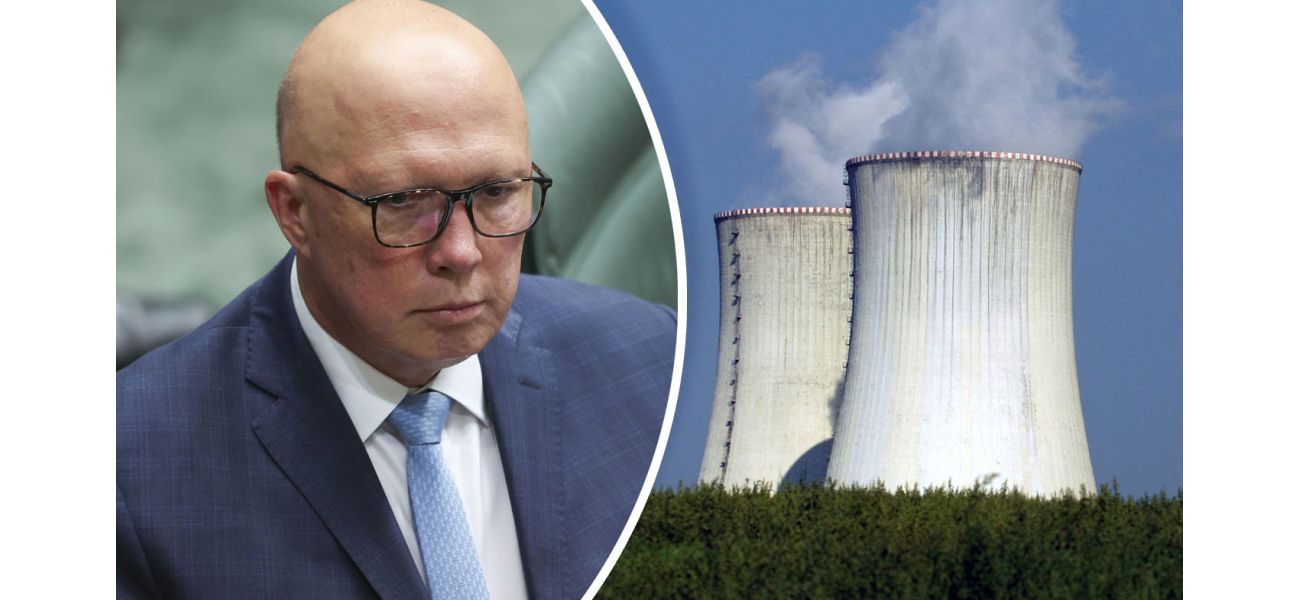A report by CSIRO shows that power prices will increase due to nuclear energy.
Experts have raised concerns about the feasibility of nuclear power in Australia.
December 9th 2024.

Experts have once again raised concerns about the feasibility of implementing nuclear energy in Australia. A recent report from the CSIRO has shown that nuclear energy would cost more than twice as much as using renewable sources. The GenCost report, which was released this morning, concluded that a combination of solar and wind power, along with firming, is the most cost-effective means of producing energy, and this will remain true for the foreseeable future.
According to the report, nuclear energy does not offer any significant cost advantage over other technologies. In fact, the report found that similar cost savings can be achieved with shorter-lived technologies, such as renewables, even when accounting for the need to build them twice. Paul Graham, the chief energy economist at CSIRO and lead author of the report, stated that the lack of an economic advantage for nuclear energy is due to the significant costs involved in re-investing and maintaining the technology for its long operational life.
The report also compared the costs of different energy sources. It revealed that in 2019, renewables with firming had a production cost of $98-$150 per megawatt-hour, which is projected to drop to $67-$137 by 2030. On the other hand, large-scale nuclear energy has a cost of $155-$252, which is only expected to decrease slightly to $150-$245. The report also showed that small modular reactors would be even more expensive, with costs ranging from $400-$663 and $285-$487, respectively. These findings come as the federal opposition prepares to release the costings for its plan to build seven nuclear power plants.
When asked about the report, Opposition Leader Peter Dutton did not directly address the potential impact on power prices, but instead questioned the methodology used by the CSIRO. He stated that these assumptions and methods have been disputed before, and that the CSIRO has not even seen the opposition's plan yet, but are already criticizing it. However, Emeritus Professor Ian Lowe pointed out that the national science agency has changed its methodology to give nuclear energy extremely generous assumptions, which further confirms the electricity industry's belief that solar and wind with storage are much cheaper options.
Dr Thomas Longden from Western Sydney University also highlighted some of the challenges facing nuclear energy. He explained that for nuclear energy to be cost-effective, it needs to be built on a large scale and operate constantly for a long time. However, the larger the plant, the higher the upfront costs, and if it does not operate as expected, it becomes even more expensive. He also mentioned that the true cost of nuclear energy will only be revealed over a long period, taking into account construction, operational, fuel, and waste costs.
Energy expert Ken Baldwin noted that the report shows a significant decrease in the cost of solar and battery storage, while wind, coal, and gas have become more expensive. He emphasized that even when factoring in the additional costs of firming and transmission, solar and wind remain the cheapest forms of electricity generation. He also projected that this cost advantage over nuclear energy will only widen in the coming decades, especially considering the estimated lead time of 15 years for nuclear energy to be operational in Australia.
In response to these findings, Dutton promised to release the Coalition's nuclear costings later this week. It is clear that the debate surrounding the feasibility and cost of nuclear energy in Australia is ongoing, with experts and politicians offering different perspectives. As the country looks towards a more sustainable energy future, it is important to carefully consider all options and their potential impacts.
According to the report, nuclear energy does not offer any significant cost advantage over other technologies. In fact, the report found that similar cost savings can be achieved with shorter-lived technologies, such as renewables, even when accounting for the need to build them twice. Paul Graham, the chief energy economist at CSIRO and lead author of the report, stated that the lack of an economic advantage for nuclear energy is due to the significant costs involved in re-investing and maintaining the technology for its long operational life.
The report also compared the costs of different energy sources. It revealed that in 2019, renewables with firming had a production cost of $98-$150 per megawatt-hour, which is projected to drop to $67-$137 by 2030. On the other hand, large-scale nuclear energy has a cost of $155-$252, which is only expected to decrease slightly to $150-$245. The report also showed that small modular reactors would be even more expensive, with costs ranging from $400-$663 and $285-$487, respectively. These findings come as the federal opposition prepares to release the costings for its plan to build seven nuclear power plants.
When asked about the report, Opposition Leader Peter Dutton did not directly address the potential impact on power prices, but instead questioned the methodology used by the CSIRO. He stated that these assumptions and methods have been disputed before, and that the CSIRO has not even seen the opposition's plan yet, but are already criticizing it. However, Emeritus Professor Ian Lowe pointed out that the national science agency has changed its methodology to give nuclear energy extremely generous assumptions, which further confirms the electricity industry's belief that solar and wind with storage are much cheaper options.
Dr Thomas Longden from Western Sydney University also highlighted some of the challenges facing nuclear energy. He explained that for nuclear energy to be cost-effective, it needs to be built on a large scale and operate constantly for a long time. However, the larger the plant, the higher the upfront costs, and if it does not operate as expected, it becomes even more expensive. He also mentioned that the true cost of nuclear energy will only be revealed over a long period, taking into account construction, operational, fuel, and waste costs.
Energy expert Ken Baldwin noted that the report shows a significant decrease in the cost of solar and battery storage, while wind, coal, and gas have become more expensive. He emphasized that even when factoring in the additional costs of firming and transmission, solar and wind remain the cheapest forms of electricity generation. He also projected that this cost advantage over nuclear energy will only widen in the coming decades, especially considering the estimated lead time of 15 years for nuclear energy to be operational in Australia.
In response to these findings, Dutton promised to release the Coalition's nuclear costings later this week. It is clear that the debate surrounding the feasibility and cost of nuclear energy in Australia is ongoing, with experts and politicians offering different perspectives. As the country looks towards a more sustainable energy future, it is important to carefully consider all options and their potential impacts.
[This article has been trending online recently and has been generated with AI. Your feed is customized.]
[Generative AI is experimental.]
0
0
Submit Comment





